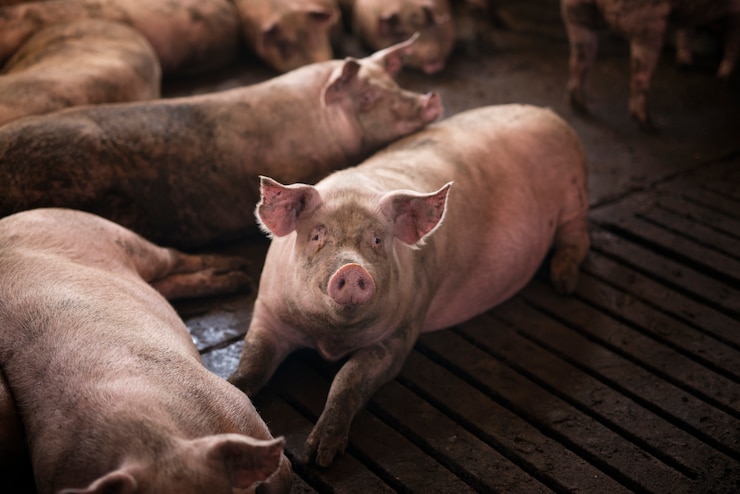Pig farming, also known as swine production, is a lucrative and rewarding venture in South Africa. Whether you’re a seasoned farmer or a newcomer to the industry, understanding the key aspects of pig farming is crucial for success. In this article, we will explore 10 important things you should know before embarking on pig farming in South Africa.
- Knowledge and Research: Before starting a pig farming business, acquire comprehensive knowledge about pig breeds, housing, feeding, health management, and marketing. Research local regulations, industry trends, and best practices to make informed decisions.
- Suitable Breeds: Choose pig breeds that are well-suited to South African conditions and market demands. Some popular breeds include Landrace, Large White, Duroc, and Pietrain. Consider factors such as adaptability, growth rate, litter size, and meat quality.
- Housing and Infrastructure: Construct sturdy and well-ventilated housing structures to accommodate the pigs. Provide adequate space for each pig, ensuring proper drainage and ventilation. Maintain clean and hygienic conditions to prevent the spread of diseases.
- Feeding and Nutrition: Develop a balanced feeding program that meets the nutritional requirements of the pigs at different stages of growth. Consult with a veterinarian or animal nutritionist to formulate appropriate diets that include grains, protein sources, and essential vitamins and minerals.
- Health Management: Maintaining good pig health is crucial for a successful operation. Implement a vaccination schedule and regular deworming program. Monitor for common pig diseases such as African Swine Fever, Porcine Reproductive and Respiratory Syndrome, and Foot-and-Mouth Disease.
- Biosecurity Measures: Adopt strict biosecurity practices to prevent the introduction and spread of diseases. Limit access to the pig farm, enforce proper sanitation, practice quarantine procedures for new animals, and maintain strict hygiene protocols.
- Waste Management: Pig waste can be a significant environmental concern. Implement proper waste management systems to handle and dispose of pig manure effectively. Consider composting, biogas generation, or utilizing waste as organic fertilizer.
- Marketing and Sales: Develop a marketing strategy to sell your pigs and pork products. Identify potential buyers, such as wholesalers, retailers, and direct consumers. Establish relationships with local markets, restaurants, and supermarkets to maximize sales opportunities.
- Financial Planning: Create a comprehensive business plan that includes investment costs, operational expenses, projected income, and potential risks. Consider factors such as feed costs, veterinary services, labor, and market fluctuations. Seek financial advice and explore funding options if needed.
- Continuous Learning and Networking: Pig farming is a dynamic industry, and staying updated with the latest advancements and trends is essential. Attend seminars, workshops, and industry events to expand your knowledge base. Join pig farming associations or networks to connect with fellow farmers and share experiences.
Starting a pig farming business in South Africa requires careful planning, knowledge, and dedication. Consider aspects such as breed selection, housing, feeding, health management, biosecurity, waste management, marketing, and financial planning. Regularly update your skills and network with other farmers to stay informed about industry developments. With the right approach and commitment, pig farming can be a profitable venture in South Africa, contributing to food security and economic growth.
Join 'Farmers Mag' WhatsApp Channel
Get the latest Farming news and tips delivered straight to your WhatsApp
CLICK HERE TO JOIN






